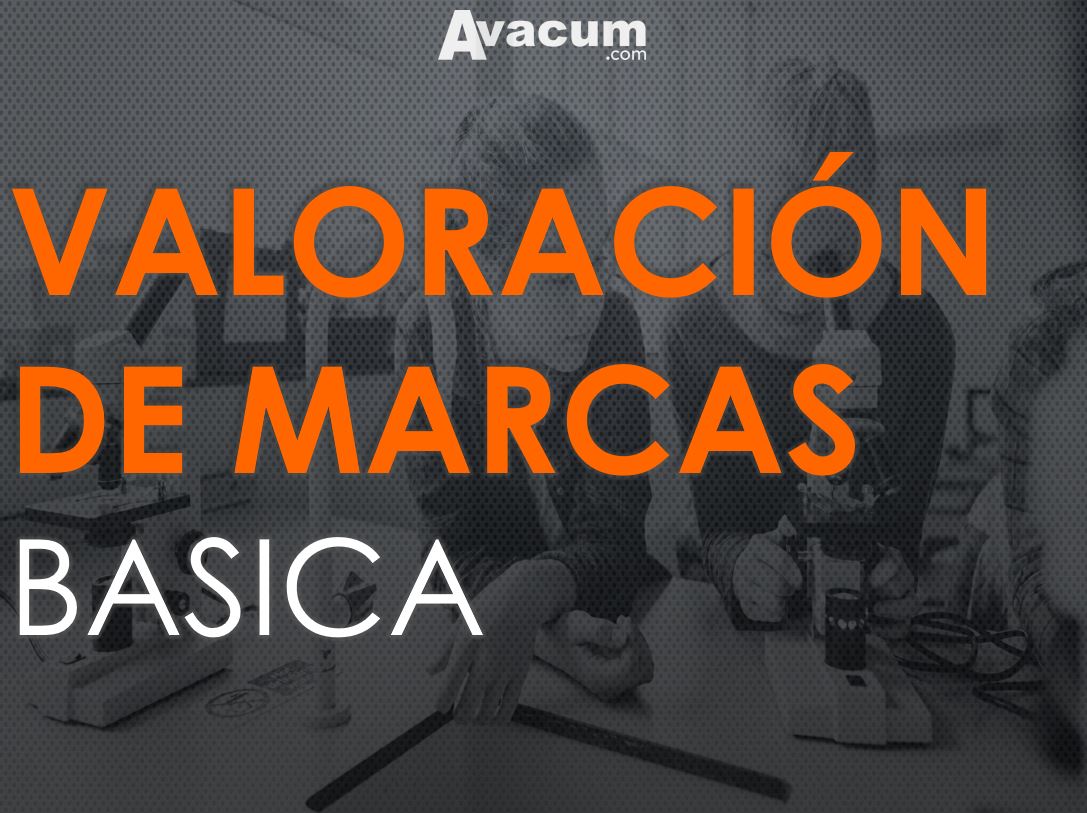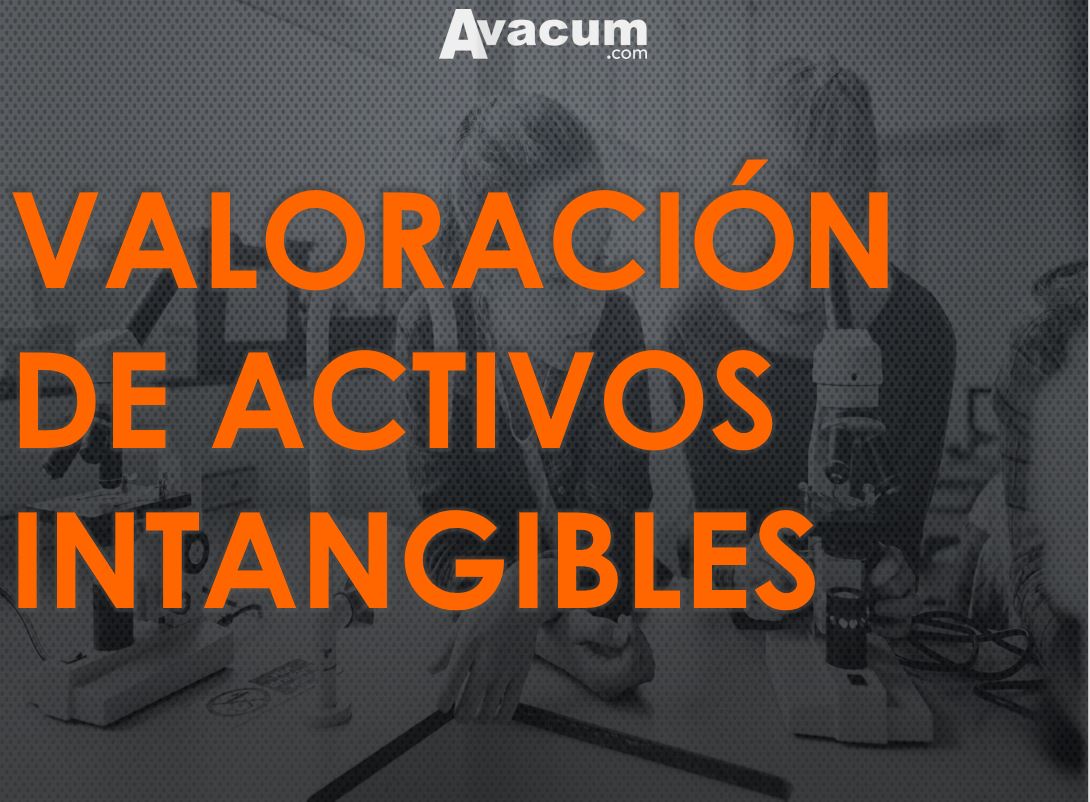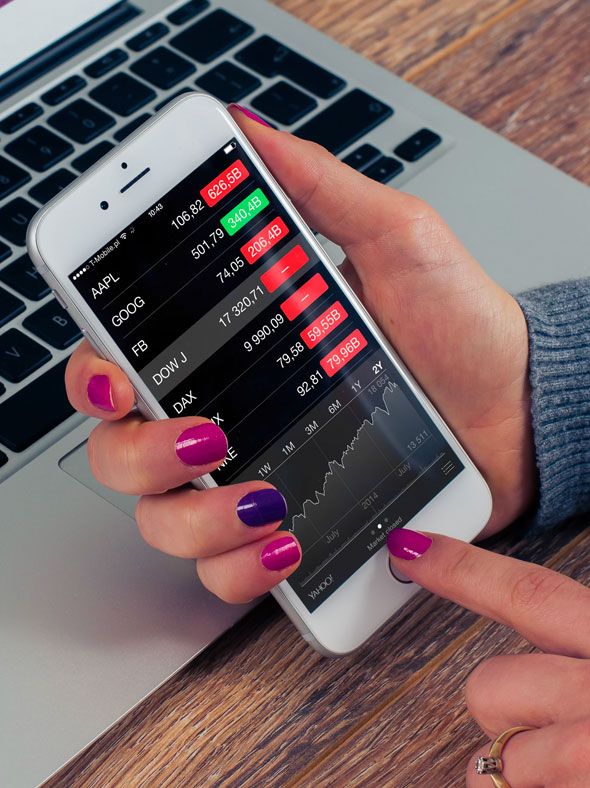Do you know the value of your brand?
The brand stands as the most crucial asset of a company.
Avacum.com assists you in understanding the true value of your brand (brand valuation) and other intangible assets (patents, etc.), while also identifying the strategies and actions that drive value creation within the company.
Our objective goes beyond merely providing a valuation; we aim to pinpoint the key elements that propel value creation in the company through its intangible assets (brands, patents, developments, etc.).
Key qualities of our Online Brand Valuation service
We achieve this by: Building trust and credibility
Applying current and innovative methodologies
Focusing on the customer and treating each project as unique.
Online Intangible Assets Valuation Services
Services
Intangible Assets Valuation
Brand Valuation
Our brand valuation methodologies represent the best approach and existing methodologies for analyzing the market value of a brand. Our analysts apply internationally accepted methodologies in accordance with USGAAP and International Accounting Standards (IFRS), as well as the application of market information from our databases.
Patent Valuation
For certain industries (such as technology, patents, etc.), patents are the most important asset, and a correct valuation provides a fundamental tool when making decisions.
Investment Project Valuation
A project or investment plan requires constant focus when measuring their economic implications. The profitability TIR, the net present value, and the generation of funds are a management tool and a demand for information from capital providers (shareholders and debtors -banks-).
Intangible Assets Valuation
El conjunto de activos intangibles conocido como «Goodwill» de acuerdo a principios contables generalmente aceptados GAAP y principios de información contable IFRS, es cada día más importante el determinar su valor.
Contact Us
Brand and intangible asset valuation, frequently asked questions.
A brand is one of a company's main assets, and nowadays brand management is one of the primary strategies for driving business growth. A brand is not just a logo with some colors and a name spelled out; it represents the integration of the business or company with society and people. Understanding its value means understanding the assets that a company possesses and is one of the key management tools.
Many business owners work every day towards the development of their company. The questions that can be asked of them are:
- Do they know the value of Equity?
- Do they know the value of their assets?
- Do they know the value of their brand?
Every management process requires constant knowledge of the value of its assets, and specifically when we value a brand.
For example, a brand may need to be valued in situations such as:
- During the process of buying or selling a company: If a company is being sold, it is important to know the value of its brand, as this can influence the final sale price. Similarly, if a company is being bought, the valuation of its brand may be an important factor in determining how much should be paid.
- To obtain financing:If a company is seeking financing, brand valuation may be necessary to demonstrate its value and attract potential investors.
- Para fines contables: En algunas situaciones contables, la marca de una empresa puede ser considerada un activo intangible, y su valoración puede ser necesaria para fines de presentación de informes financieros.
- procesos fiscales,
- incorporaciones de capital a una empresa,
- requerimientos de información de los accionistas,
- procesos contables,
- ampliaciones de capital,
- Para tomar decisiones estratégicas: La valoración de la marca también puede ser útil para la toma de decisiones estratégicas en la empresa, como el lanzamiento de nuevos productos o servicios, la expansión a nuevos mercados o la determinación de la estrategia de precios.
In summary, brand valuation may be necessary in a variety of situations, and it is important to consider it as an important asset of the company.
Avacum offers innovative brand valuation methodologies tailored to meet market requirements in accordance with USGAAP and International Accounting Standards (IFRS). Our brand valuation approach is based on an online procedure, which allows for time and cost savings without compromising the quality of the process.
There are several financial brand valuation models commonly used in the business and financial industry. Some of the most common models are presented below:
- Brand Value Method: This method is based on the premise that the value of a brand lies in its ability to generate additional income for the company. A discounted cash flow is used to estimate the present value of expected future income flows generated by the brand. The brand is considered a separate intangible asset from other assets of the company.
- Cost Method: This method estimates the value of a brand based on the cost required to create an equivalent brand from scratch. It is a measure of the intrinsic value of the brand and is often used in the case of a sale or merger.
- Market Method: This method is based on comparing the value of the brand with that of similar brands that have been bought or sold recently. Information on comparable brand transactions is used to estimate the value of the brand in question.
- Usage Test Method: This method measures the effectiveness of the brand in terms of its ability to attract and retain customers. This method involves evaluating customer loyalty, market penetration, and the impact on the market share of the brand in question.
In general, each model has its own advantages and limitations, and the choice of the appropriate model will depend on the specific needs and objectives of the company. In addition, the financial valuation of a brand may also include other factors such as brand image, reputation, and other related intangible assets.
Intangible assets are those that, despite not having a physical representation like land or a building, have value and, more importantly, contribute to the profitability of a company.
In many cases, they are not recognized by accounting, but if we analyze the balance sheets of the world's largest companies, we can see that intangible assets represent an increasingly significant portion of their total assets.
Intangible assets are non-physical assets that cannot be touched or seen, but have economic value and contribute to the success of a business. These assets can include intellectual property, such as patents, trademarks, copyrights, software, and trade secrets. They can also include assets such as a company's reputation, customer relationships, contracts, technical knowledge, and staff skills.
Unlike tangible assets, which include physical goods such as buildings, machinery, and equipment, intangible assets have no physical value and cannot be touched or seen. However, they can have significant economic value and can be an important source of competitive advantage for a company.
Intangible assets are considered an important asset on a company's balance sheet and are recorded in financial statements. Valuing intangible assets can be complicated, as there is often no established market for these assets and their value can be subjective. However, intangible assets can be very valuable and, in some cases, can represent the majority of a company's total value.
Examples of intangible assets include brand, patents, intellectual property, contracts, concessions, designs, software programs, and IT developments.
Goodwill, also known as "fondo de comercio" in some countries, refers to the intangible assets, both identifiable and non-identifiable, that a company possesses. It represents the intangible value of a company's assets.
Determining the value of goodwill is one of the most important factors in analyzing a company's profitability.
Goodwill is a term used in accounting and finance to refer to the intangible value that a company possesses beyond its tangible assets and its ability to generate profits.
Goodwill is created when a company acquires another company for a price that exceeds the book value of its net assets. The excess price paid is attributed to intangible factors such as reputation, customer loyalty, quality of management, and other intangible assets that cannot be directly measured.
Goodwill is recorded as an asset on the acquiring company's balance sheet and is gradually amortized over a set period of time (usually between 5 and 20 years) as it is used up. The amortization of goodwill reduces the book value of the asset on the company's balance sheet and affects its net income.
Goodwill is important because it can have a significant impact on a company's total value and its ability to generate long-term profits. However, it can also be difficult to measure and value accurately, which can lead to challenges in evaluating a company's true financial health.
To determine goodwill, a valuation of the company or business unit being acquired must be performed. The value of the company is determined through a valuation process that takes into account several factors, such as tangible assets and intangible assets.
Once the value of the company has been determined, the fair value of identifiable assets and liabilities must be subtracted to arrive at the value of goodwill. The fair value of identifiable assets and liabilities can be obtained through a separate valuation process, using methods such as market value, replacement cost, and net present value.
It is important to note that goodwill is only recorded on financial statements at the time of acquisition. Subsequently, goodwill must be evaluated annually to determine if its value has decreased and if an accounting correction is required.
Yes, the value of an asset can vary significantly over time.
The valuation of an asset is based on multiple factors that can change over time, including market supply and demand, the performance of the issuing company, macroeconomic and political trends, public perception of the asset, and other internal and external factors.
For example, a company may experience changes in its financial situation due to changes in management, market conditions, competition, unforeseen events, changes in government regulations, among other factors. These changes can affect the price of its shares in the stock market.
Therefore, it is important for investors to be aware that asset prices can fluctuate over time and to carefully analyze before making an investment decision. Diversification and risk evaluation are also key factors in managing market volatility.
A brand is a distinctive sign that identifies and differentiates a company's products or services from those of other companies. It can include elements such as a name, a logo, a slogan, a design, or any other feature that is distinctive and recognizable to consumers.
A brand can be registered to obtain legal protection, which means that no one else can use the brand for similar products or services without permission. This helps protect the reputation and identity of the company and can also help prevent confusion among consumers.
In addition to identifying and differentiating products or services, a brand can also be used to convey values and attributes that the company wants to associate with its products or services, such as quality, innovation, reliability, or sustainability.
In summary, a brand is a fundamental element of a company's identity and can be a very valuable asset if managed properly.
Ultimas entradas
Brand Valuation
In the business world, branding has become a fundamental element for the success and differentiation of companies in an increasingly competitive market. Brand valuation is an essential practice for organizations as it enables the quantification and measurement of the value of this intangible asset. In this article, we will explore the concept of brand valuation, its benefits, and how it influences strategic decision-making.
The concept of brand valuation refers to the financial estimation of the monetary value of a brand in the market. It is a complex process that involves analyzing various aspects such as brand recognition, consumer loyalty, reputation, and market position. Through different methods and approaches, brand valuation experts evaluate these factors to determine the economic value of a brand.
One of the key benefits of brand valuation is that it provides companies with a clear and objective understanding of the financial importance of their brand. It allows executives to comprehend the impact of the brand on the overall value of the company and its revenue generation. Additionally, brand valuation facilitates strategic decision-making regarding brand management, such as expanding into new markets, product development, or investment in advertising campaigns.
Another significant benefit of brand valuation is its utility in mergers and acquisitions. In a business transaction context, the brand can represent a significant portion of the total value of a company. Potential buyers assess the value of the brand and consider its potential for generating future revenues. Accurate brand valuation is essential for negotiating fair deals and ensuring that both parties fully understand the value the brand brings to the company.
Brand valuation can also have a significant impact on accessing financing. A strong and well-valued brand can increase investor confidence and facilitate capital acquisition. Lenders and investors are more willing to support companies with strong brands as they recognize their ability to generate stable and long-term income.
Además de estos beneficios, la valoración de marcas brinda a las empresas la oportunidad de identificar áreas de mejora en su gestión de marca. Al comprender el valor económico de la marca, las organizaciones pueden tomar medidas para fortalecerla y protegerla. Esto puede incluir estrategias para mejorar la reputación de la marca, aumentar la visibilidad en el mercado y fomentar la lealtad del cliente.
In addition to these benefits, brand valuation provides companies with an opportunity to identify areas for improvement in their brand management. By understanding the economic value of the brand, organizations can take steps to strengthen and protect it. This may include strategies to enhance brand reputation, increase market visibility, and foster customer loyalty.
Más información: avacum.com
References: Corporate finance

In a fiercely competitive business environment, brand valuation has emerged as an indispensable tool for companies. It enables the measurement and quantification of the economic value of a pivotal intangible asset while providing invaluable insights for strategic decision-making.
From the vantage point of mergers and acquisitions to securing financing, brand valuation plays a pivotal role in driving the success and profitability of organizations.








